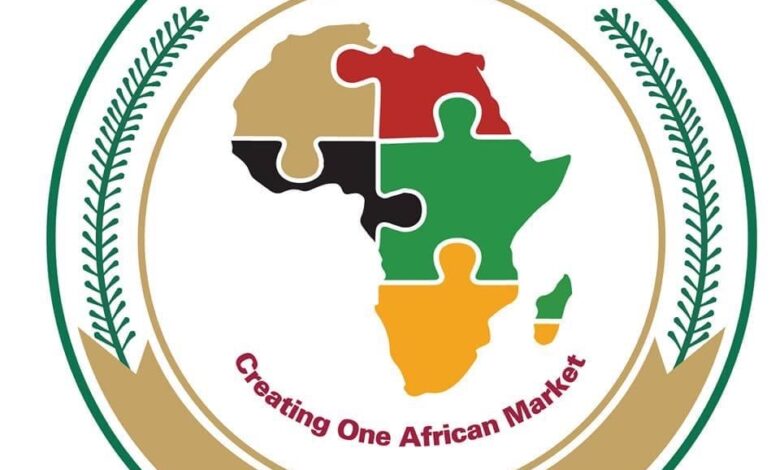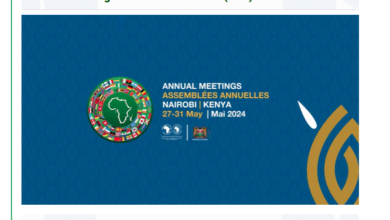AfCFTA: The Future of Intra-Africa Trade

The AfCFTA (Africa Continental Free Trade Area) is a high ambition trade agreement between member African nations. It includes critical areas of Africa’s economy. These areas include digital trade and investment protection among others. It has been operational since 2021 to date. Additionally, its aim is to boost intra-African trade. Particularly, trade in value added products and across all economic sectors.
Moreso, it does this by eliminating barriers to trade within Africa. It brings together AU member states (54 as of March 2023) under one roof of intra trade. These members have signed the AfCFTA agreement for the benefit of their countries. The overall directive of this agreement is to create a single continental market. This will be with a population of about 1.3 billion people. Furthermore, it will have a combined GDP of an estimate of US$ 3.4 trillion.
Moreover, the AfCFTA is part of the projects of Agenda 2063: The Africa We Want. This is the African Union’s long term development strategy to transform the continent, into a global powerhouse.
Why AfCFTA was formed.
Also, its aim is to broaden and deepen economic integration in Africa. Africa produces similar products, and this dates back to the colonial era. Colnialism brought new technologies leading to nations producing the same products and services. Before this, African communities traded goods unique to their regions. However, with the AfCFTA, intra-trade will fill market inefficiencies in these different countries. Additionally, this will improve market competitiveness of these products for export. This exchange of goods and services within Africa will unite countries’ economies.
Moreover, it will help to attract investment. The AfCFTA has an investment protocol to facilitate investment. This protocol will promote, facilitate and protect investments. It will strengthen sustainability of State parties. All the while safeguarding the right of States to regulate. It will also aim to set up an open and solid continental legal structure on investment. Additionally, it will also consider the interests of both State Parties and investors.
Benefits of AfCFTA for Africa
Thirdly, it will boost trade within Africa. The idea of borderless trade will improve the volume of trade. It can also improve the quality of trade as well, with time. Less time will be spent on trade as currently, time is wasted at borders during clearance. African borders are known to have red tape that delays traders. This is currently not favourable for efficiency. The freedom of trade without borders will boost intra-African trade.
Last but not least, AfCFTA will provide better jobs and increase shared prosperity. An AfCFTA official believes that there is need for youth participation in cross-border trade. This is according to a United Nations article. This will be through the creative industry and technology. In addition, this could boost job creation and improve economic development.
Furthermore, the article states that an agreement was signed between UNDP and AfCFTA. It states that free trade can spur about 10 new value chains. Many of these will support the creative sector. This will in turn increase shared prosperity among these African creatives and their communities, Zimbabwe included.
History of intra-Africa trade
Interestingly, Africa used to trade well amongst itself before colonialism. Africa traded based on ecologically produced goods. Currently, African nations produce similar goods which they trade. The survival and prosperity of African communities was based on mutual benefits of trade. Additionally, they practised barter trade. This is the exchange of goods and services without the use of money. Certain regions were known for particular goods, and they traded them for goods they did not have.
Also, some of the goods produced in the Sahara include rock salt, copper, livestock and cereals. A number of African communities exchanged gold for different goods. Mali’s gold put it on the map bringing in foreigners. This was after its ruler left a lot of gold in Cairo as gifts. Ghana was also known as the land of gold by the eighth century. Making it a target for colonialism. This is just a tip of the trade iceberg in pre-colonial Africa.
Now, Africa is working to ensure its communities are taken care of by intra trade. The AfCFTA aims to raise the living condition of Africans. To do this, they will blend trade rules and empower countries to trade easily in the modern era. They will provide a platform for negotiating trade agreements. Additionally, they will address matters of concern to each Member States.
Previously, Africa’s trade was seamless and functional. It all fell apart when the rest of the world scrambled to get its resources. This is still affecting trade as the restrictions at borders came with colonialism. The AU member states are working together to do away with this and open up borders for free trade. It is a dream that will come to life if all those involved are deliberate and work together.





